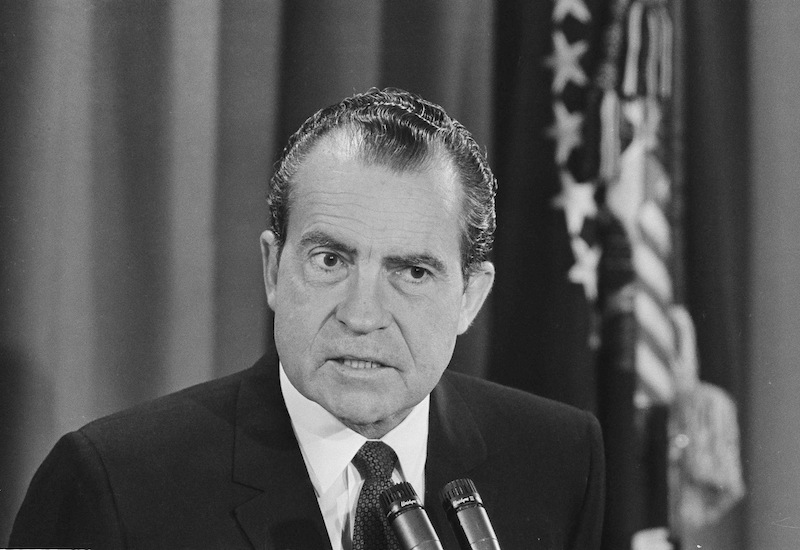The final installment of secretly recorded phone calls and meetings from President Richard Nixon’s White House will be released Wednesday, marking a final chapter in a campaign for public access that continues as memories of Watergate fade.
The recordings cap the chronological release of 3,000 hours of tapes Nixon recorded between February 1971 and July 1973 that have been released by the National Archives and Records Administration. The final installment covers the tumultuous three months when Watergate was closing in on the 37th president. Still, he forged ahead with Soviet peace talks, worked to cement Chinese relations and welcomed home Vietnam prisoners of war.
“This is a really big release in volume and importance, because of the time period it covers,” said Luke Nichter of Texas A&M University-Central Texas in Killeen, who runs a website cataloging Nixon’s secret recordings. “This is the end of taping and this is Watergate really beginning.”
The recordings released Wednesday from the Nixon Presidential Library and Museum in Yorba Linda, Calif., cover April 9, 1973, to July 12, 1973, the day before the existence of the covert recording system was revealed to a Senate committee probing Watergate.
Also unveiled will be 140,000 pages of documents, including more than 30,000 recently declassified items such as an intelligence analysis of Vietnam. Another 700 hours of Nixon tapes remain classified or restricted and haven’t been released because of national security and privacy concerns.
Nixon’s second term was quickly overrun by the Watergate scandal, which began in 1972 when burglars tied to his re-election committee broke into the Democratic headquarters to get dirt on his political adversaries.
Previous tape releases show the president as a paranoid man who wasn’t afraid to use bare-knuckle tactics to crush the enemies he saw all around him.
Tapes released in 2009 show, in particular, Nixon’s obsession with the Kennedy family. He considered Ted Kennedy such a political threat, for example, that he ordered surveillance in hopes of catching him in an affair.
Wednesday’s release of 340 hours of audio promises to be equally revealing, with material on Watergate and conversations between Nixon and Henry Kissinger, three future presidents, and celebrities Billy Graham and soccer superstar Pele.
The recordings cover a period that includes the resignation of two top White House staffers and the attorney general in one day, the appointment of a special Watergate prosecutor, and the formation of a the Senate committee that would elicit damning testimony precipitating Nixon’s political demise.
Nixon nonetheless kept busy with diplomacy that yielded important peace talks with the Soviets and a thawing relationship with China — events also reflected on the tapes.
He met with Soviet leader Leonid Brezhnev in June 1973 for the only summit ever recorded on an American presidential taping system. The meeting was a follow-up to Nixon’s visit to the Kremlin the year before and was the first attempt at U.S-hosted peace talks with the Soviets in six years.
The tapes also include material on the Vietnam peace settlement and the return of hundreds of POWs to U.S. soil.
Faced with impeachment and a possible criminal indictment, Nixon resigned on Aug. 9, 1974 — a little more than a year after the tapes end — and retreated to his native California, where he was pardoned a month later by Ford.
___
Online:
http://www.nixonlibrary.gov
Copyright 2013 The Associated Press.






